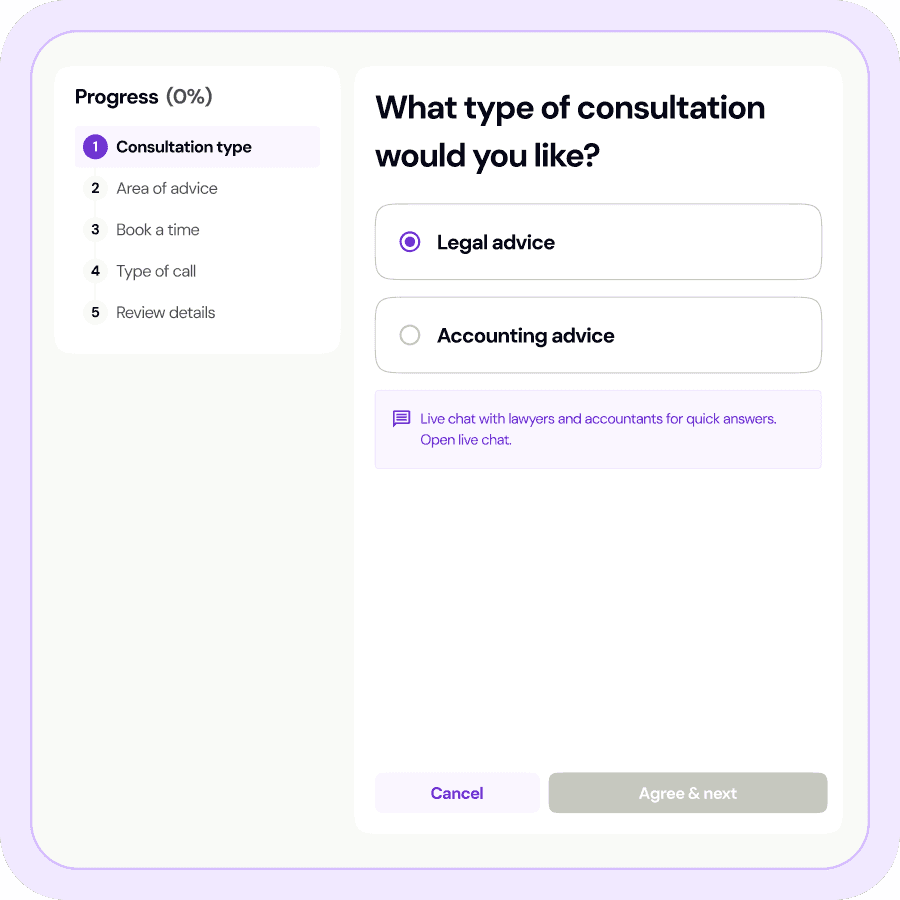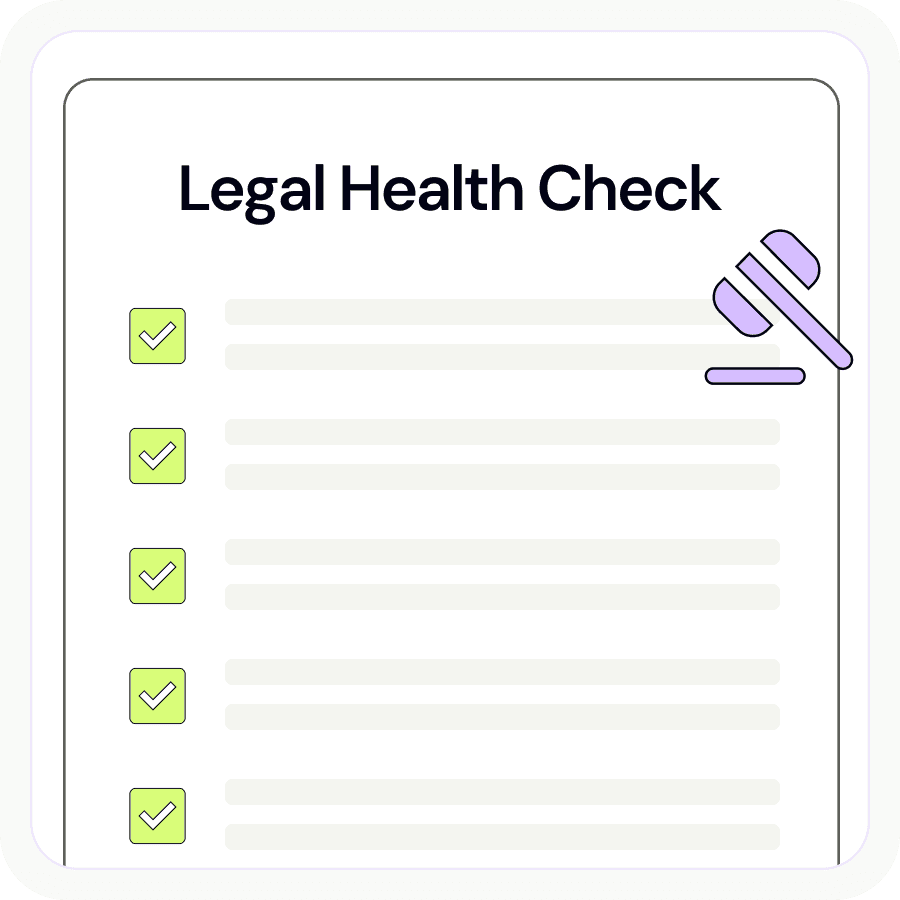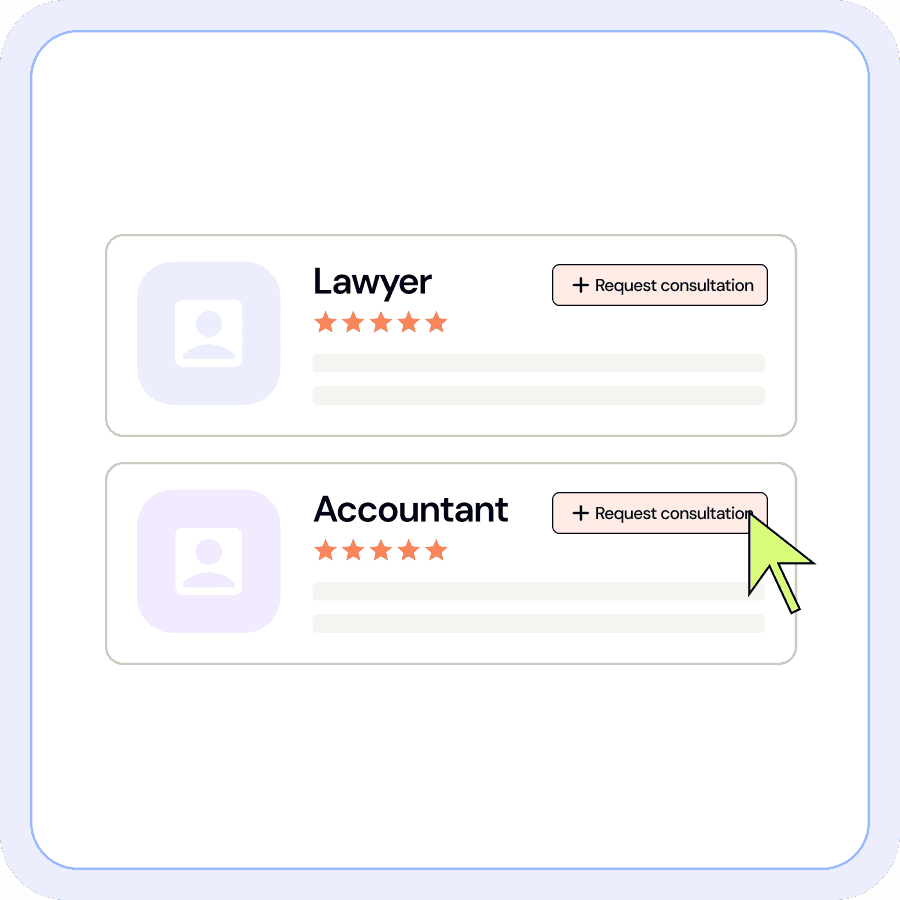If you are thinking of starting an online business in Australia, then legal compliance will be of utmost importance. Even for small e-commerce businesses, legalities can be tricky to navigate.
That’s why we’ve put together this guide. It will go over the main e-commerce legal requirements so you can ensure compliance and breeze through launching your online platform.
Table of Contents
What is a small e-commerce business?
A small e-commerce business in Australia typically means a solo operator or micro-business with minimal staff, limited overheads, and a focus on flexibility and low entry costs. This could be a side hustle, a home-based operation, or a single-person company selling products online via their own website or a marketplace.
The appeal? You can start small, scale at your own pace, and keep risk manageable, which makes it accessible for anyone with a good idea and the drive to execute.
How to start a small e-commerce business in Australia
Here’s a practical, step-by-step guide to e-commerce business set-up in Australia.
Step 1 – Decide on a business structure (sole trader vs company e-commerce)
Choosing the right business structure is the foundation for your e-commerce venture. In Australia, the two most common options for small online businesses are operating as a sole trader or registering a proprietary limited company (Pty Ltd).
Each structure comes with its own legal, financial, and administrative implications, so it’s crucial to understand how your choice will affect your liability, tax obligations, and ability to scale.
Sole Trader
- Easiest and cheapest to set up
- You control and own the business.
- You’re personally liable for debts and legal issues.
- Profits are taxed as your personal income.
- Simple to wind up or change later
Company (Pty Ltd)
- This is a separate legal entity, so your personal assets are generally protected from business debts.
- Higher setup and compliance costs
- More credibility with suppliers and customers
- Company profits are taxed at the company rate (25% for small businesses as of 2025).
- More complex reporting and ongoing obligations
Which to choose?
If you’re just starting out and want minimal costs and admin, sole trader is usually best. If you plan to scale, take on investors, or want liability protection, consider a company structure.
Step 2 – Register for an ABN and business name
Before you can officially open your (virtual) doors, you’ll need to register an Australian Business Number (ABN) for your e-commerce business with the appropriate government authorities. Additionally, if you want to trade under a name other than your own, you’ll also need to register a business name with the Australian Securities and Investments Commission (ASIC).
Here’s how to get your business set up and compliant from the start.
- ABN: Every business in Australia must register an ABN.
- Business Name: If trading under a name other than your own, register the business name with ASIC. Fees are $44 for one year or $102 for three years (as of 2025).
- Company Registration: If you choose a company structure, register your company with ASIC (fee: $576 as of 2025).
- Domain Name: Secure your .com.au or .au domain (typically $10–$30/year).
Step 3 – Understand your legal obligations
Understanding your legal obligations is critical before you start selling online in Australia. Every e-commerce business, regardless of size, must comply with a range of federal and state laws designed to protect both you and your customers.
Below are the key legal areas you need to address to ensure your online store operates lawfully and builds trust with your customers
- Australian Consumer Law (ACL): You must comply with consumer guarantees on products/services, refunds, and fair trading. Non-compliance can lead to heavy penalties.
- Privacy Act 1988: If you collect personal data (name, email, address), you need a Privacy Policy for your online store outlining how you handle information.
- Copyright and IP: Ensure you have the right to use all images, logos, and content on your site.
- Website Policies: Terms and Conditions, Refund Policy, and (ideally) a Shipping Policy.
- Other Licences: Check if your products/services require special permits.
Step 4 – Set up your online store (basic overview)
Before you can start selling, you’ll need to set up your online store so customers can browse, order, and pay for your products securely.
- Choose an e-commerce platform: Select a platform that fits your budget and needs. Popular options for Australian businesses include Shopify, WooCommerce, BigCommerce, and Wix.
- Register your domain name: Secure a relevant .com.au or .au domain name to help build trust with Australian customers and protect your brand.
- Set up website hosting: Some platforms (like Shopify) include hosting, while others (like WooCommerce) require you to arrange hosting separately.
- Design your store: Add your products, descriptions, and high-quality images. Make sure your site is easy to navigate and visually appealing.
- Ensure website security: Install an SSL certificate to encrypt customer data and protect online transactions. This is essential for compliance and customer trust.
- Optimise for mobile: Ensure your website is mobile-friendly, as a significant portion of Australian online shopping happens on smartphones.
- Publish required legal policies: Clearly display your Privacy Policy, Terms and Conditions, and Refund/Returns Policy on your site. These are not only legal requirements but also help to build customer confidence.
By following these steps, you’ll create a professional, secure, and compliant online store that’s ready to welcome your first customers.
How much does it cost to start an e-commerce business in Australia?
The cost of starting an e-commerce business in Australia depends on many factors, including the set-up you choose, your suppliers, the providers you choose, and so on.
You may also want to factor in additional costs for legal and accounting support. For example, Lawpath provides a range of services to help you streamline the first steps in setting up your business. We offer services like:
- ASIC registration
- ABN registration
- Legal documents
- And much more
By working with Lawpath, you can save a lot of time and prevent headaches along the way. Plus, we will help you ensure legal and tax compliance.
Here’s a breakdown of typical setup costs for a small online business (all prices in AUD).
| Item | Cost Range | Notes |
| ABN registration | Free | Via Australian Business Register |
| Business name registration (ASIC) | $44–$102 | 1 year: $44, 3 years: $102 |
| Company registration (if applicable) | $576 | One-off ASIC fee |
| Domain name (.com.au/.au) | $10–$50/year | Via domain registrars |
| Website hosting | $60–$300/year | Varies by provider |
| E-commerce platform (Shopify, etc.) | $42+/month | Shopify Basic: $42/month (on annual plan), WooCommerce: free + hosting + optional fees |
| Payment processing fees | 1.75%–2.9% + 30c | Per transaction (Stripe, PayPal, Shopify Payments) |
| Legal documents (Lawpath templates) | $0–$300 | Lawpath offers affordable legal document templates |
| Logo/branding (optional) | $0–$500 | DIY or via freelancers |
| Business insurance (optional) | $400–$1,000/year each | Public liability, product liability |
| Bookkeeping/accounting software | $10–$50/month | Xero, MYOB, QuickBooks |
Legal essentials every e-commerce store must have
A legally compliant online store is about more than just avoiding penalties. You’ll also need to build trust with your customers and protect your business from costly disputes.
Australian e-commerce law sets clear expectations for transparency, data handling, and consumer rights. Here are the essential legal documents every e-commerce store in Australia must have.
Website Terms and Conditions
Your Website Terms and Conditions of Use set the rules for how visitors and customers interact with your site. This document limits your liability, protects your intellectual property, and clearly outlines your order process, payment terms, and dispute resolution procedures.
Privacy Policy
If your website collects any personal information, such as names, emails, addresses, or payment details, you are legally required under the Privacy Act 1988 to publish a Privacy Policy.
This policy must explain what data you collect, how you use it, how it’s stored, and how customers can access or correct their information.
Refund and Returns Policy
ACL mandates that all online businesses provide a clear Refund and Returns Policy. This policy must outline how customers can return products, request refunds, and any exceptions or special conditions.
Shipping Policy (Recommended)
While not strictly mandatory, a Shipping Policy is highly recommended for any e-commerce business. This document outlines your delivery timeframes, shipping costs, and what happens if an order is lost or damaged in transit.
Do I need to register for GST or pay tax?
As a business owner, you’ll need to know when to register for Goods and Services Tax (GST), how your business income will be taxed, and what’s required for proper record-keeping.
GST registration
You must register for GST if your annual turnover is $75,000 or more. If your turnover is below this threshold, registration is optional but not required.
GST is set at 10% and must be collected on most goods and services sold in Australia.
Income tax
Sole traders pay tax at individual rates based on their total income, while companies pay tax at the company rate, which is currently 25% for small businesses.
Understanding your structure’s tax obligations is essential for accurate reporting and planning.
Record keeping
You are required to maintain clear and accurate records of all income and expenses. This includes issuing compliant invoices and using accounting software to track your finances.
Good record-keeping supports your tax filings and helps you monitor your business’s financial health.
Common mistakes to avoid when starting a small e-commerce business
Here are some of the most common mistakes new e-commerce business owners in Australia make. Plus, we have included practical solutions to ensure your venture stays compliant and protected.
- Not having a Privacy Policy or other required legal documents
Solution: Make sure to upload and clearly display your Privacy Policy, as this is a legal requirement. Regularly review and update these documents to reflect changes in legislation. - Using an unregistered business name or failing to register an ABN
Solution: Register your business name with ASIC and obtain an ABN through the Australian Business Register before you start trading. - Forgetting to register for GST when turnover exceeds $75,000
Solution: Monitor your revenue closely. As soon as you expect your annual turnover to reach $75,000, register for GST with the ATO to avoid penalties and ensure you’re collecting and remitting GST correctly. - Mixing personal and business finances
Solution: Open a dedicated business bank account as soon as you start trading. This makes it easier to track business income and expenses and simplifies tax reporting. - Ignoring refund/returns obligations under ACL
Solution: Draft a Refund and Returns Policy that complies with the ACL, clearly outlining when customers are entitled to a refund, repair, or replacement. Display this policy prominently on your website and ensure your team understands the rules. - Using copyrighted images or content without permission
Solution: Only use images, text, and other content you have created, purchased, or licensed. Utilise reputable stock photo libraries or create your own assets to avoid copyright infringement and potential legal claims. - Not keeping proper financial records, risking ATO penalties
Solution: Implement bookkeeping software from day one and issue compliant invoices for every sale. Keep all receipts and records organised to meet ATO requirements and make tax time stress-free.
By proactively addressing these issues, you’ll build a solid legal and operational foundation for your e-commerce business, helping you avoid costly mistakes and focus on growth.
Quick Recap
E-commerce Startup Checklist (Australia):
- Choose a business structure (sole trader or company).
- Register for ABN and business name via ASIC.
- Secure your domain name and set up hosting.
- Draft and publish required legal policies (Privacy, T&Cs, Refunds).
- Register for GST if turnover > $75,000.
- Open a business bank account.
- Set up basic bookkeeping/accounting.
- Use Lawpath for affordable legal templates.
FAQ
Do I need an ABN to sell online in Australia?
Yes, you need an ABN to operate any business in Australia, including online stores. Without one, the government may withhold a significant portion of your income.
Can I run an e-commerce business as a sole trader?
Absolutely! Many Australians start as sole traders for simplicity and low cost. You can always transition to a company structure later as you grow.
Building a compliant e-commerce business
Launching a small e-commerce business in Australia is more accessible than ever, but legal compliance is non-negotiable. By getting your structure, registrations, and legal documents right from day one, you’ll protect yourself, your customers, and your future profits.
Lawpath’s affordable legal templates and legal services make it easy for small business owners to get started with confidence. Now, you can focus on what you do best: building your dream business.










